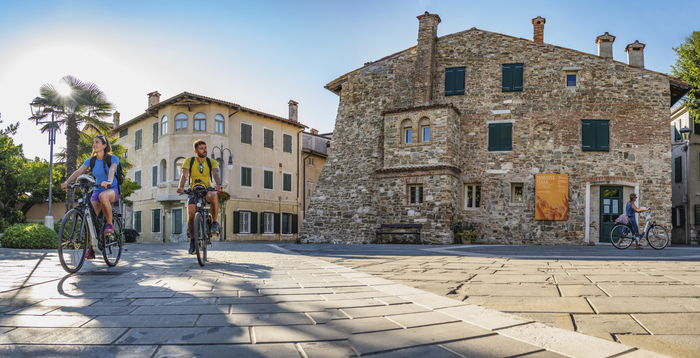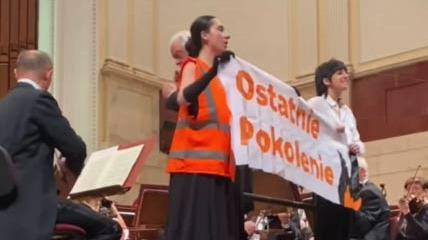Puccini's "Il Trittico" at the Salzburg Festival: Crossing the borders of love
Created: 07/31/2022Updated: 07/31/2022 15:39
By: Markus Thiel
The critical mass of singers has been reached: Asmik Grigorian (right) as Suor Angelica with Karita Mattila as La Zia Principessa.
© Monika Rittershaus
This is the new bracket for Puccini's "Il Trittico": Salzburg's festival favorite Asmik Grigorian sings all three main soprano roles in Christof Loy's filigree, vivid production.
The Lithuanian does not do everything equally well.
For a long time it has smelled heavily of dramaturge sweat.
How to force the operas of Giacomo Puccini's "Il Trittico" together?
How to discover, claim, show similarities?
The master himself, albeit unwillingly, was willing to make compromises, allowing individual performances and ultimately fragmentations of his three-pack, which had been released in New York in 1918
(plot at the end of the text)
.
And he might have smiled kindly at the Salzburg Festival solution, which simply rearranged everything.
First the grotesque "Gianni Schicchi", brought from the back to the front, then "Il tabarro" and finally "Suor Angelica", resulting in a dramatic increase in emotion and pathos. Because anyway, let's be honest: what should happen after the nun's lake of tears -Suicide yet to come?
There is a very simple bracket in the Great Festival Hall, and it's called Asmik Grigorian.
All three soprano roles are sung by the Lithuanian, who has been the festival favorite since “Salome”.
Three characters, one voice, it doesn't always work out perfectly.
Her Lauretta in "Gianni Schicchi" lets her shine harshly, but sings that "O mio babbino caro" is also meant to be ironic.
The Giorgetta ("Il tabarro") is the most successful.
Director Christof Loy and his new muse make it clear: the play cannot be reduced to a drama of jealousy.
There is still love between Giorgetta and her husband Michele.
Once she lays her head on his chest - what if we try again for the sake of the story together?
In the last piece, Asmik Grigorian fights for a few notes
You can also hear a lot resonating vocally.
In the Grigorian, something young and girlish drifts into dramatic aplomb, bittersweet stands next to the outburst of despair.
The Angelica in part three becomes a border crossing.
With Karita Mattila as the princess dominatrix, the critical mass of singers has already been reached.
First the shy, self-contained nun, then the outbursts of frustration, finally the vocally spacious, wide-arched view of the better afterlife: this is impressive in its absoluteness, as a total work of art for singing.
But you can also hear the exertion in the Grigorian, the struggle for tones.
Have the heavy Strauss and Wagner interventions left their mark?
And shouldn't one try more diction work?
Loy rolls up all three dramas as broken realism.
The “Gianni Schicchi” gets by without a caricature parade, is delicately seasoned, erotic commedia.
When everyone snuggles up to the young singer of the title hero, Misha Kiria, it becomes clear that greed is increasing, and not just for money.
A huge room (stage: Étienne Pluss) determines all three operas, and in a radical reduction.
Bed and chairs are enough for "Gianni Schicci", tables and chairs plus potted plants for "Suor Angelica", only in "Il tabarro" does a barge dominate the scene.
Franz Welser-Möst grants an exciting look into Puccini's workshop
Typically Loy, each mini role gets its own story, is plausible, vivid, and never denouncing drawn.
The idiosyncrasies of the singers merge with the characters.
You could easily point the camera at it, this opera directing has cinema class.
Sometimes the action freezes, black holes become noticeable, a view over 15 meters says more than a gesture.
And no hasty judgments are ever made.
There is always another possibility, signals the evening.
In "Il tabarro" with the buried love between Giorgetta and Michele, but also in "Suor Angelica": When the title heroine learns of the news of her son's death, she takes off her sister's costume, transforms herself with a cigarette, short black clothes and more openly curly mane into a confident woman.
No kitsch orgy including Marian apparition,
she lies lifeless on the ramp with the imagined child.
But one senses that she could have left the monastery without any problems and looked for another life.
The sounds from the ditch are similarly finely laced as Christof Loy's production.
The Vienna Philharmonic is allowed to step on the gas in the big agglomerations.
But Franz Welser-Möst is otherwise interested in other things.
For the soft, toned-down sound in “Il tabarro”, for the commedia iridescence in “Gianni Schicchi”, which was golden thanks to the Viennese, and for the slag-free, aerated pathos of “Suor Angelica”.
It is an exciting look into Puccini's workshop that shows: even conductors who are otherwise associated with the German subject have a knack for these scores - just think of Christian Thielemann or Wolfgang Sawallisch.
Except for the heroine Karita Mattila and Hanna Schwarz as La Badessa with a cameo appearance, this is a remarkably youthful and therefore vocally agile ensemble.
This affects Misha Kiria as Schicchi, but especially Roman Burdenko as Michele and the high testosterone values of his robust singing.
Alexey Neklyudov is a very lyrical Rinuccio, for whom Welser-Möst steps on the brakes, Joshua Guerrero is a Luigi from the Italian Lover's model book.
No failure, everything staffed appropriately.
Expect the cheers too.
Poverty, loneliness and weariness of life still work best on stage when the champagne beckons.
also read
Bregenz Festival: the Blitz Opera on Lake Constance
"Everyman" in Salzburg: the festival starts with Verena Altenberger and Lars Eidinger
Further performances
on August 5, 9, 13, 18 and 21, salzburgerfestspiele.at;
Broadcast on Arte Concert on August 13, 6.30 p.m., then available in the media library.
The plots:
Il tabarro”
: The love between Giorgetta and Michele, owner of a Paris barge, has grown cold.
She is having an affair with Luigi.
Upon discovering this, Michele strangles Luigi.
"Suor Angelica"
: Angelica was forced into a convent after giving birth to an illegitimate child.
The Princess, Suor Angelica's aunt, visits her there after seven years and says the child has died.
Angelica kills herself.
"Gianni Schicchi"
: The relatives of the dead Buoso Donati look forward to the inheritance.
Rinuccio, nephew of Buoso's cousin, wants to marry Lauretta, Gianni Schicchi's daughter.
Buoso left everything to the Church.
The solution for the disappointed relatives: Gianni Schicchi disguises himself as Buoso and orders a different will from a notary.
Gianni Schicchi cunningly bequeathed the most to himself.
Lauretta and Rinuccio can hug each other.









